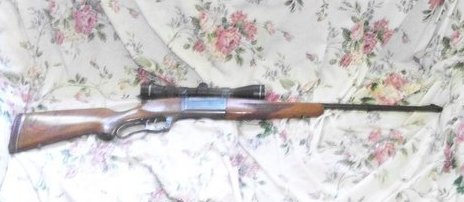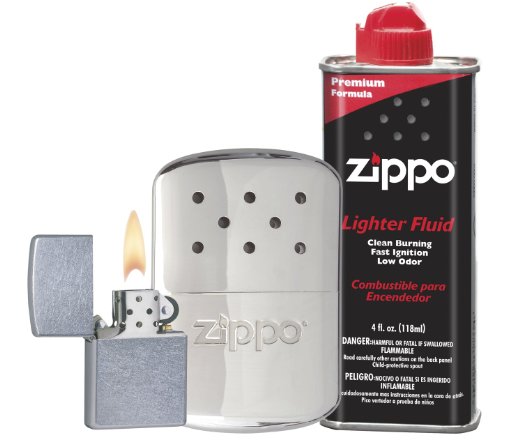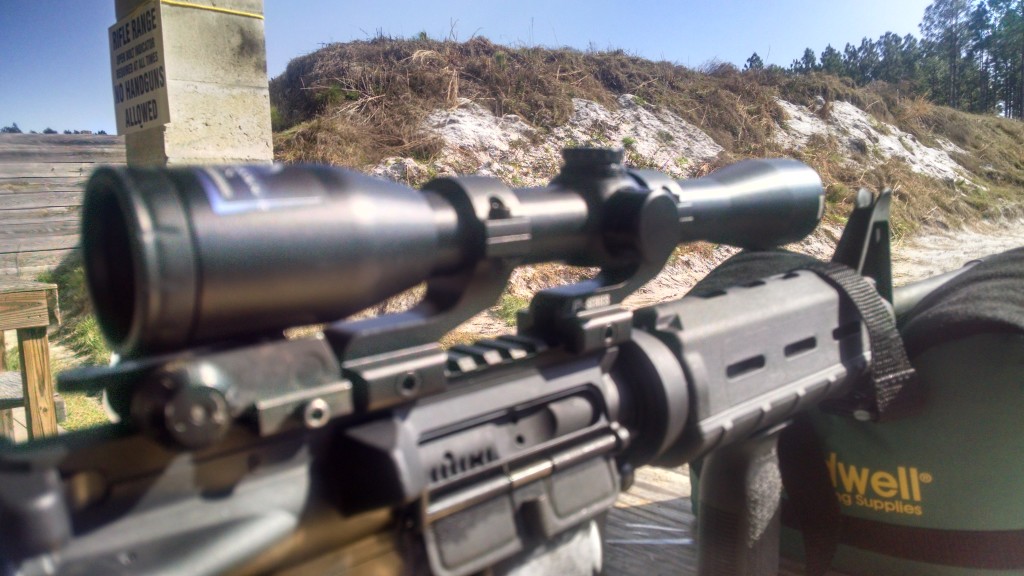There’s nothing quite like a brand new lock, stock and barrel. If you want your gun to stay the way it looked when you took it out of the box, you need the best gun oil you can get your hands on. The hardest part of choosing the most suitable lubrication for your firearm is wadding through the flashy packaging and trendy naming.
The best gun lube does a few things:
- It protects bare metal from corrosion and oxidative residue from your hands.
- Prevents spent powder and the air from eating away the metal of the firearm.
- Allows metal to glide and interface between parts without grinding or shaving the parts.
These are our top 5 recommendations which we will go in to more detail further down:
How to Pick the Best Gun Lube
99% of gun lubes on the market are virtually the same. When you buy a product that claims to be heads and tails above all others you just bought snake oil. The things to look for when buying a quality lube are the following:
- How well the product applies to the surface of your firearm
- How long the product lasts
- How well the product comes off the surface of your firearm
That’s it. There’s nothing special about oil or grease. It’s a buffer between two pieces of metal. It keeps the metal from rusting by shielding it from oxygen and helps reduce friction between parts and that’s all it needs to do. This is important to keep in mind because if you drink the cool aide of a certain brand or manufacturer it can cost you in performance and headache.
Thick or Thin?
Some oils are thick and some are thin. If you’re in a cold climate and will face a lot of snow and freezing temperatures, choose oil that is thinner because it’ll flow better in the cold weather and lubricate the parts more reliably.
If you’re in a hot and humid environment use oil that is thicker and will stay put better. This way you don’t have to worry about it running and attracting dirt and grime. Lighter oils always work better for protecting metal because it will go on thinner and not rub off as easy in a thin coat.
Replacing the Oil
It is just as important to know how the oil comes off your gun as to how it goes on. If you can’t get the lubrication off when it comes time to clean it you just might as well pour cement into it. All oil will inevitably fail, attract powder residue and hold dust. It needs to come out and it has to be replaced. Always choose a well-balanced oil that you can replace.
Some brands, like Frog Lube, claim to be perfect because they offer long time protection after seasoning and conditioning. This is a bad idea because if you run out of these products you lose all the benefits of it. Also, any solvent strong enough to dissolve copper fouling or leading is certainly strong enough to strip off any temporary coating or lubricant.
When in doubt use a manufacturer recommended cleaner and lubricant and check your firearm function before you need it to go bang. Over lubrication of a firearm can be just as bad as under lubricating it, so be sure you know what you’re doing.
Multiple Coats of Oil
You can’t have multiple coats of oil on a piece of metal. When oil “dries out” or rubs off it’s gone. You’ll sometimes hear people talk about saturating and conditioning metal. This is hogwash. No barrels, springs, bolts, or even sacred cast iron skillets hold multiple coats of oil. Metal is a crystalline structure and doesn’t absorb oil like leather would. You can only have a single coat of oil because it puddles instead of absorbing.
When you hear about over lubrication of pistols, rifles and shotguns what is normally being referred to is a person who has dumped oil multiple times on to a firearm and it has attracted dust and debris. The oil can be glue and stick in critical components such as firing pin channels and extractor grooves. If you use a lot of oil and are having spotty operation, clean your gun and lube it properly.
What is CLP?
CLP is a multi-use product that stands for Clean Lube and Protect. A few companies manufacture these products and market them as one-stop shops for cleaning and lubricating firearms. I say avoid them. These products are made with chemicals that have to stay together in the same can for years at a time and that means they have to use a weak solvent and a very light oil.
CLP products will rarely work as well as a separate solvent and oil combo. They won’t cut the mustard when it comes to dissolving copper fouling, leading or really crusted up power residue. The protectant in the products won’t last long and won’t provide in the field protecting the crevices of the action. It’s not hard to use a solvent and then follow up with the proper oil or grease. Skip the CLP and keep your gun working right.
Oil vs Grease
In short, oil is one thing and grease is another.
All you need to really know about the difference between oil and grease is the consistency of the product. Grease is much thicker and it normally contains some sort of sediment that reduces friction. Oil can be various weights and thicknesses and is used for parts that need to be protected from oxygen and rust.
Oil is used for objects that rotate and reciprocate. Grease is used for parts that need to slide. An example would be to use grease on the action arms of a pump action shotgun or the slide rails on a semi-auto pistol. These parts need to slide without binding and need to reduce friction. While grease will protect a surface from rust, it is a much better option to use oil. This is because oil won’t be gooey and hold dust and grime.
Remington "Rem Oil"
The old standard. This is great oil because it’s cheap and doesn’t dry out. Really it doesn’t stand out in any other way than it just works and is cheap. You can get Rem Oil in several different kinds, a spray bottle, a dropper, or in a bulk oil jug.
Rem oil is extremely light and is the best for preventing rust. This makes it the best oil for 1911’s because it’s great for rubbing onto steel uncoated parts to prevent rust. It won’t dry out or rub off easily and when it does it won’t leave a residue or film. This makes it great for concealed carry pistols and show piece guns to keep them protected without a heavy coating.
Rem oil can be a bit thin for semi-auto pistols in the slide and action. I wouldn’t use it for critical pieces, although it has been for years. My only gripe with Rem oil is it’s so thin you have to use a bunch. When you really glob it on it runs everywhere. However, it’s cheap and sold literally everywhere and in any delivery mode you need, including spray on and in bulk. You can’t go wrong with Rem Oil.
Breakthrough Battle Born Oil
Battle Born Oil is from Breakthrough clean and is by far the best gun oil in the market. It is available in a spray bottle, bulk jug and in small vials. This oil is fantastic because it is thin enough to flow and spread out enough even to be the best lube for cold weather. This oil is thin but is stickier than other oils and will stay where it’s put as long as you put enough there.
This stickiness makes it the best for glocks and similar semi-auto pistols with the ability to stay put and protect the multitude of moving parts. The spray bottle is awesome because you can easily coat all the parts liberally and the excess wipes off easily. I have found this oil cakes with unburned powder easily but cleans up great with almost any solvent.
The final feature that sets this oil apart from the rest is that it’s non-toxic, non-staining, and has almost no odor. Be wary of oils that smell like kerosene, they can be very flammable and give awful headaches. I highly recommend this oil for any firearms that need extremely high quality oil for protecting moving parts from wear and tear.
Hoppe's No. 9 Oil
What’s there to say about Hoppes? Many deer hunters get in the mood for gun season by taking a whiff of Old Hoppe's No.9. This formula of oil is a mainstay of hunters because it’s cheap, available and comes in several different deliveries. It’s also safe to use following Hoppe’s solvents. It’s thinner than most and it flows very well into the gaps in firearms.
The best feature of this oil is how long it lasts. This oil is light enough to use an exterior protector to combat rust and corrosion but stays like an oil of much heavier weight. This oil also shrugs off dust and residue unlike other oils. It works well as general oil as well for fishing reels, squeaky tree stands and anywhere you need light oil with a lot of staying power.
There is a problem with this oil though, it stinks. If you use this oil for your equipment, make sure to air it out because it smells like an old jug of kerosene.
M-Pro 7 Gun Oil
Brought to market by the legendary Hoppes Company, the M-Pro 7 gun oil is a fully synthetic oil made specifically for modern rifles and shotguns. This is the best oil for AR-15s because of this oil’s long life and resistance to heat. This is one of the few oils that will actively repel dirt, grime and powder residue from critical parts. This is especially important for direct gas impingement rifles that need oil that can do a lot.
This oil is tough and sometimes too tough. The oil likes to run and resists some solvents and has to be brushed out by hand and soaked in a heavy solvent. Some parts like a bolt carrier group from an AR-15 can be very hard to get squeaky clean. This is a shame because that’s exactly what this oil was designed for. However, it sure does keep a barrier between the moving metal parts.
Battle Born Grease
The Battle Born Grease is the best gun grease I’ve ever used. The hallmark of a good gun grease is being able to stay where you put it and not gum up. Many other brands gum up easily and mix with dust, sand or when they get wet turn into paste. Even the greases that work well don’t apply easily because they’re in either a toothpaste type tube or just a can.
Breakthrough makes really slick products. They’ve really come out with a winner here and it’s one of my favorite products, it’s their Battle Born Grease. First thing you’ll notice is that it’s in a syringe with a long enough tip to put the grease exactly where you want. This stuff goes exactly where you want and stays there. I’ve never seen any grease quite like this:
- Doesn't gum or gel
- Won't hold dust
- Has more staying power than anything on the market
- Comes right off with a mild solvent
- It's mixed with PTFE
- Odorless
- Colorless
- Non-toxic
- Non-staining
- Comes in 12cc syringes
I can’t recommend the Battle Born syringe enough and it really is worth every penny. This is the best grease for Sig Sauer and other guns that need a lot of grease in nooks and crannies.
Summary
Properly lubricating your gun isn’t hard. It can be distilled down and the hardest part becomes taking your gun apart and putting it back together without losing those tiny springs that fly across the room to never be seen again. I wouldn’t get too wrapped around the bush with finding the absolute best gun oil, stick to well-known brands of solvents and lubricants and you can’t go wrong with finding the correct one.









Finally a common sense no frills article on firearm lubricants. I’ve been frowned upon for using Rem Oil but have never had any rust issues ever and all my actions function easily and smoothly. I got guilted into using something different so I bought Break through solvent and Oil. Guess I made a good choice…
Breakthrough is an awesome solvent, oil and grease combination because of the quality. It doesn’t smell and resists burning, but as far as performance, the only different is it lasts longer than Rem Oil. If it’s the last clean of the season and you’re packing your gun away for storage, it matters. I shoot my CCW guns every week and the oil gets washed off anyway, so it doesn’t matter. Rem Oil is still the king of effective cheap light oils.